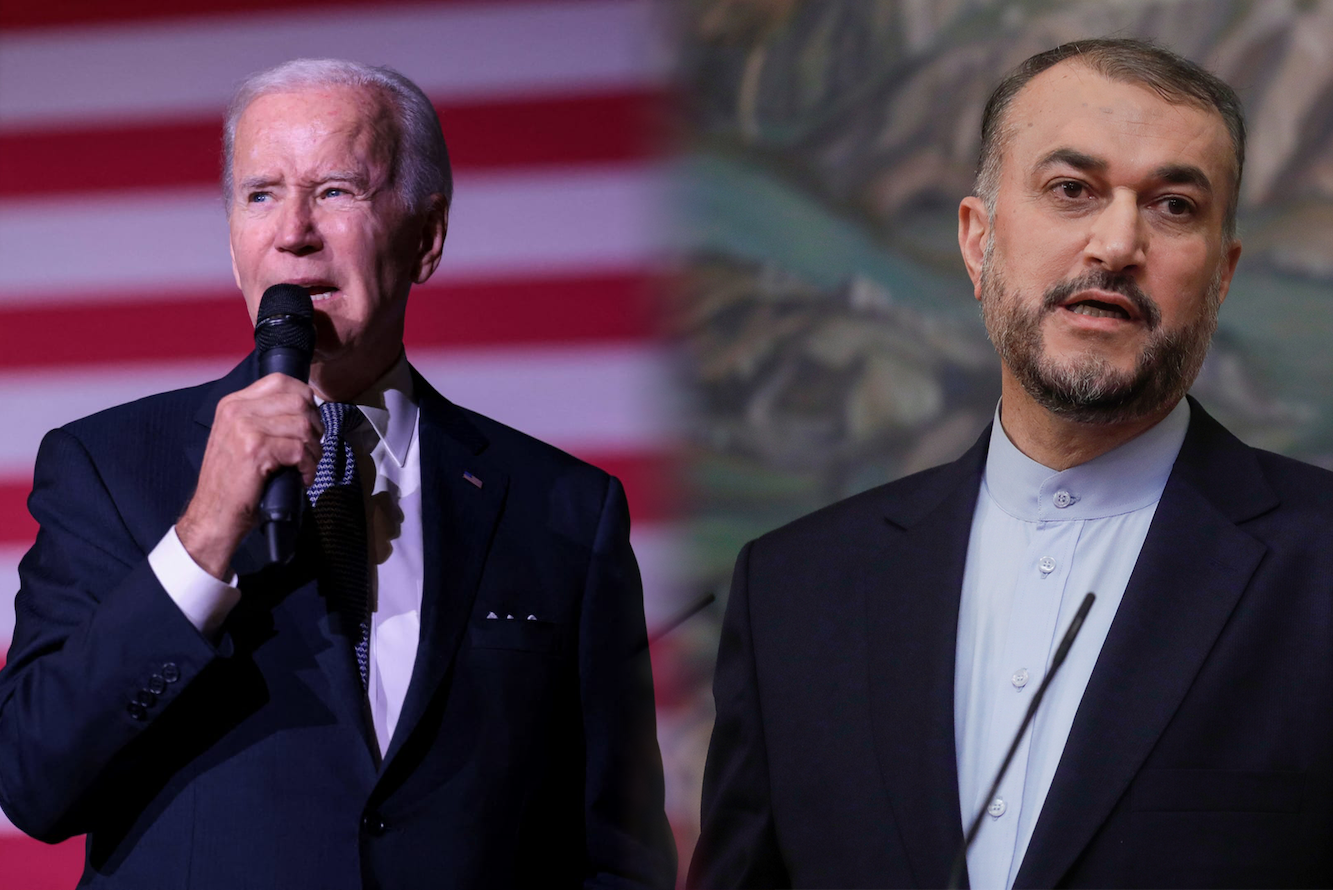Iran seeks to resume negotiations for its nuclear program to achieve several goals, most notably to avoid the stage of producing a nuclear bomb, which would lead to the formation of a hard-right government in Israel, and increased tensions with the west. Iran seeks to avoid antagonizing those countries, which would lead them to classify the Revolutionary Guards as a terrorist organization.
Despite the decline in US and Western interest in the nuclear negotiations, which have stalled since last August, made clear by US President Joe Biden, in his statement that “the nuclear agreement is dead,”. Iran is still keen to continue negotiations and reach a new nuclear agreement.
Iranian Foreign Ministry spokesman Nasser Kanaani stated on January 2, that “Iran is ready to resume negotiations, but the option of reaching a final agreement rests with the US.” On the other hand, Iranian Foreign Minister Hossein Amir Abdollahian said on December 28 that “the window for nuclear negotiations is still open, but it will not remain so forever.” It was remarkable that Abdullahian issued this warning during his visit to the Sultanate of Oman, whichsuggests that the visit was aimed at conveying direct messages to some Western countries, especially the US. This also paralleled the statements of Assistant Foreign Minister Ali Bagheri Kani, in which he said that Iran is ready to end negotiations and reach a settlement.
Incentives to reaching an agreement.
Iran’s interest in reaching an agreement on its nuclear program is represented in several incentives most notable are:
1- Avoiding the Most Difficult Scenario: Although Iran has made many threats that it will continue to develop its nuclear program, perhaps even reaching the stage of acquiring the ability to produce a nuclear bomb, in the event that negotiations fail. However, it may not prefer to resort to this option, at least not now, as Iran is facing complex crises at the same time, and therefore it does not want to risk facing multiple crises that may prove to be more difficult to face up to at this moment in time.
The Iranian regime now faces a critical dilemma, given that it has raised the expectations of the Iranian peopleregarding the nuclear program, given the threats it has directed to Western countries and its insistence not to make concessions in the negotiations. This in a way has made it not possible to retreat from these threats at the present time. Developing the nuclear program and perhaps bringing it to the critical stage in case the current bet on negotiations fails.
2- Not Ruling Out A Direct Conflict: Iran no longer rules out getting involved in a direct conflict in the region, in light of the formation of a new right-wing government in Israel led by Benjamin Netanyahu, which makes confronting the Iranian nuclear threat among its priorities. This was evident in the Israeli government’s threat to form an international front to confront Iran’s attempt to acquire a nuclear bomb. On the 2nd of January, the new Israeli Foreign Minister, Eli Cohen, reaffirmed his country’s commitment to preventing Iran from acquiring nuclear military capabilities. He stated that Israel would work to “formulate a unified international front to thwart the Iranian nuclear military project.” Israeli Prime Minister Benjamin Netanyahu announced his commitment to opposing the nuclear negotiations in the coming period.
Iran is undoubtedly aware that the continued development of its nuclear program and their faltering cooperation with the IAEA, will push Israel to continue its security and intelligence operations in Iran to disrupt their nuclear program, hinder the development of theirmissile program, and target nuclear and military scientists. Although these operations have declined in recent months due to the outbreak of Iranian protests since the 16th of September, they may be tempted to restart them again with the formation of the new government, and Iran’s continued upgrading of its nuclear capabilities.
3- Avoiding the End Scenario with the West: Iran may seek to avoid escalating tensions with Western countries to the end stage, especially since the differences between them are no longer confined to the nuclear negotiations. Their quarrels with the West have extended to Iran’s military support to Russia to help it continue to manage its military operations in Ukraine, and the violations that it committed. The Iranian authorities continue to commit crimes against the protesters, who are now receiving support from the international community, although this support is still minimal and has not yet affected the current confrontation between the regime and the Iranian street.
Increasing the level of tension with Western will likelymean imposing international isolation on Iran, given itsstrong relations with Russia and China even if currently they face difficult tests. Tensions with China suddenly increased, after the participation of Chinese President Xiin the three summits held in the Saudi capital, Riyadh,from the 9th to 13th of last December. Iran’s relations with many countries in the region are also strained due to the continued Iranian interference in the region as a whole.
4- Western Threats to Label the “Pasedran” as a Terrorist Organization: Iran desires to avoid pushing Western countries to adopt the previous stance, taken by the administration of former US President Donald Trump, by classifying the Revolutionary Guards as a terrorist organization. This would create new complications that could bring a complete halt to Iran’s interests and calculations at the present time.
Reports have indicated that the British government mightbe inclined to take this step, in light of the increasing tensions with Iran. Whether its the nuclear negotiations, military support to Russia, violations against protesters, or the mass detention of the people that are linked to Britain due to the protests that number seven people. It was unprecedented that British Prime Minister Rishi Sunak directed strong criticism against Iran, as he demanded, on the 2nd of January that Iran ceases the detention of dual nationals to gain diplomatic influence. This clearly shows that Iran is using this as a trump card in managing its disputes with Western countries.
Germany seems to be considering a similar step, as Germany has recently waged a strong campaign against Iran, escalating tensions. Many reports indicate that the German Parliament is calling for the classification of the Revolutionary Guards as a terrorist organization, and that a group of political activists have called on parliament to adopt this stance.
Buying Time
Iran’s insistence on resuming negotiations on its nuclear program and that Iran deems that there is still hope to reach an agreement, is not an indicator of Iran seeking to change its hardline stance on either matter. With the current protests in Iran looking like they are about to end, as they are currently on their fourth month of protests, has added to the pressure on the regime leading many to assume that they will become more lenient in their stance on foreign issues. However, the regime is yet to show this flexibility and Iranian regime has yet to respond to any of the pressures currently being exerted. The West is trying to take advantage of the protests to pressure the Iranian regime in the current nuclear negotiations, this is all in an effort to try and reach credible gains in the contentious issues between the West and Iran in 2023.


